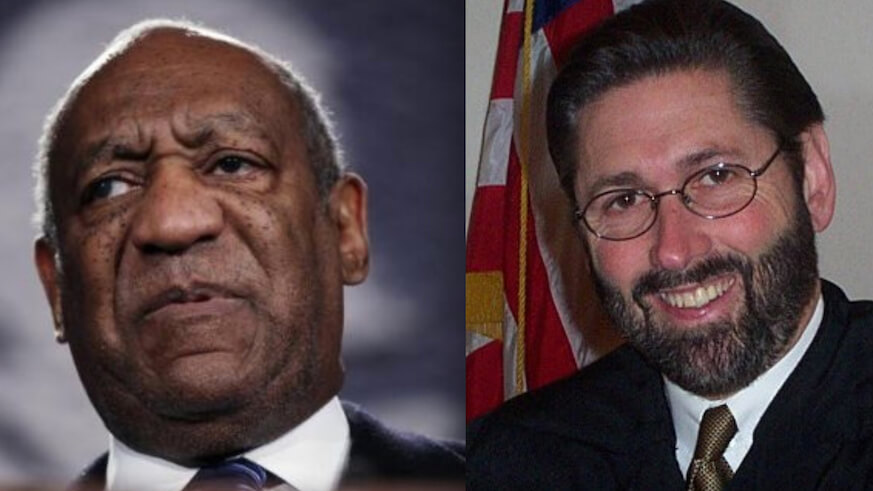The sentencing for Bill Cosby on sex assault charges is set to proceed on Sept. 24 as scheduled, after a Montgomery County judge slapped down eleventh-hour motions accusing the judge of bias.
Montco Judge Steven T. O’Neill rejected motions by attorneys for Bill Cosby asking him to recuse himself from the case, filed two weeks before Bill Cosby faces five to 15 years on three counts of indecent sex assault for drugging and molesting a former Temple University employee in 2004.
Cosby’s lawyer Joseph Green said O’Neill had a grudge against former Montco DA Bruce Castor over an alleged feud in 1998 during a competition for the DA’s race and involving O’Neill’s former girlfriend. O’Neill said the motion was filed too late and was factually inaccurate.
“No ‘grudge,’ animus, bias or prejudice can be claimed, because it simply does not exist,” O’Neill wrote in his decision rejecting Cosby’s motion and ordering sentencing to proceed as planned on Sept. 24.
The salacious motion claimed that O’Neill had a bias against Castor due to, in 1998 Castor allegedly seating O’Neill’s ex-girlfriend in front-row center during a debate for the GOP nomination for district attorney, which allegedly broke O’Neill’s focus and damaged his performance. Castor later got the nomination and became DA. Ergo, a “hostile and acrimonious” relationship existed between the two that tainted early pretrial evidentiary proceedings in Cosby’s trial, the lawyers claimed.
Cosby’s wife, Camille Cosby, also claimed O’Neill was unethical after the motion was filed and demanded his actions be investigated.

Latest motion denied for Bill Cosby
But O’Neill noted numerous failing with the motion, which was based on an article published in March on the gossip news website Radar Online, a day before Cosby’s retrial, as O’Neill was weighing a previous legal team’s motion for his recusal. The article includes a quote from Cosby spokesman Andrew Wyatt, and thus should have been known to Cosby’s legal team during the retrial and presented at that time, O’Neill wrote. His competition for DA with Castor was also a matter of public record, but never raised by Cosby’s 15 defense attorneys over two trial, O’Neill found.
O’Neill further noted that Castor served as DA of Montgomery County for six years while O’Neill was on the bench, from 2002 to 2008.
“Not once during his tenure as District Attorney was Mr. Castor, or anyone else, heard to ascribe some sort of ‘grudge’ or prejudice against Mr. Castor in any criminal matter that came before this court,” O’Neill wrote. “Since 2009, Mr. Castor has, on occasion, appeared before this court as a criminal defense attorney and has never sought disclosure or disqualification of the court of because of some perceived bias or ‘grudge’ against him.”
The role of former DA Castor is deeply intertwined with the Bill Cosby case because, as Montco DA in 2005, he decided to not charge Cosby with drugging and sexually assaulting Andrea Constand in his Cheltenham mansion in 2004, deeming her testimony “not credible.”
After Montco DA Kevin Steele, who defeated Castor in the 2015 race for DA, indicted Cosby, Castor suddenly claimed that he had made a secret non-prosecution agreement for the Constand case, never memorialized in any court hearing or legal filing, with Cosby’s former attorney, who was then deceased.
During a two-day hearing in February 2016, O’Neill heard Castor testify about the alleged secret agreement, but ultimately rejected it as inadmissible and allowed the prosecution against Cosby to proceed.
Cosby is still set to be sentenced on Sept. 24 for three counts of indecent sexual assault.




























